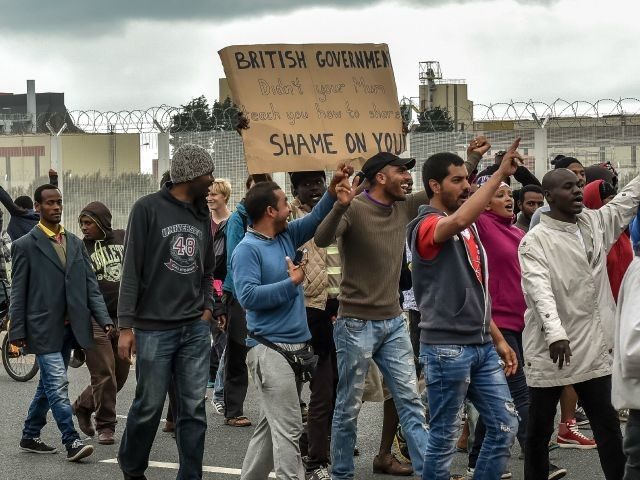The future of the Schengen zone, a borderless area stretching across much of mainland Europe, is in doubt following the gun attack on a train in France last Friday. Politicians from across northern Europe questioned whether the arrangement can be allowed to continue considering the increased terrorist threat brought about by large scale migration from the Middle East and North Africa.
On Friday, a Moroccan gunman armed with a Kalashnikov rifle, a pistol and a knife opened fire on passengers on a train en-route from Amsterdam to Paris. The gunman, who had been granted European residency by Spain but had been drifting around Europe, embarked in Brussels, Belgium without having to go through any security checks or show his passport.
The attack has prompted Charles Michel, Belgium’s prime minister, to call for urgent talks with France, Germany and the Netherlands on increasing security on cross-border trains, according to the Financial Times.
Germany’s interior minister Thomas de Maizière has gone one step further, saying he cannot rule out Germany suspending participation in Schengen. Although he supported the agreement, he reiterated that Schengen was “in danger.”
He added: “Of course Britain has a special role – it is not part of Schengen. But all EU countries must become more aware of their responsibilities.”
This morning, Ukip leader Nigel Farage told LBC that he agreed with de Maizière, saying: “I think the Schengen agreement is in danger. Just last week we saw the Swedish Democrats top the polls, we’ve seen Marine le Pen advancing strongly in France, she wants an end to Schengen, and I think Northern European politics is changing rapidly, and what the German minister is saying is a reflection of that.
“I think countries will demand the right to check who comes into their country. All it needs – and God forbid this happens – all it needs is one terrorist atrocity committed by somebody who is seen to have come across the Mediterranean on one of those boats and freely move through Europe and the whole thing will change very quickly indeed.”
And he agreed that, despite being outside the Schengen Zone, Britain still faced challenges to border control posed by free movement of people: “When a British officer at Dover takes a passport from an EU citizen and puts it into his computer we ourselves can’t do anything to stop people coming in from Europe even if we know they’ve got a criminal record, so we shouldn’t be too complacent here by saying ‘we’re outside the Schengen zone’. We are, but there’s nothing we can do to prevent free movement of people who’ve got an EU passport.”
He said that, when Schengen was first dreamed up it was a “lovely idea”, but that it had “completely outlived its usefulness,” adding: “Frankly, when ISIS say that they will use the migrant tide that is coming across the Mediterranean to flood Europe with their jihadists we had better believe them.”
Whatever the motivations of the migrants, the European Commission has already begun digging its heels in over Schengen, insisting that it is “non-negotiable”, and that they had no plans to change it.
But Stephen Woolfe MEP, Ukip’s migration spokesman told Breitbart London that, much like the Euro, real world events may undermine the Europhiles’ dreams.
“Last week the German Chancellor said that the great Mid-East, African migration to Europe was a more important issue than Greece and the fate of the Euro. She’s dead right,” he said.
“At the heart of a solution to this issue is for EU members to regain control of their own internal and external borders. Schengen was a dream too far even for Euro-federalists and the real politics of the ebbs and flows of people across the world and the corresponding security issues that go with it are starting to blow Schengen apart.
“The French are returning migrants to Italy, the Macedonians to Greece, the Hungarians are building a wall. Others are secretly planning to destroy the very concept of uncontrolled access between member nation states in order to prevent serious economic and social displacement. Europe’s leaders must now face the realities of life that UKIP have been talking about for many years”

COMMENTS
Please let us know if you're having issues with commenting.